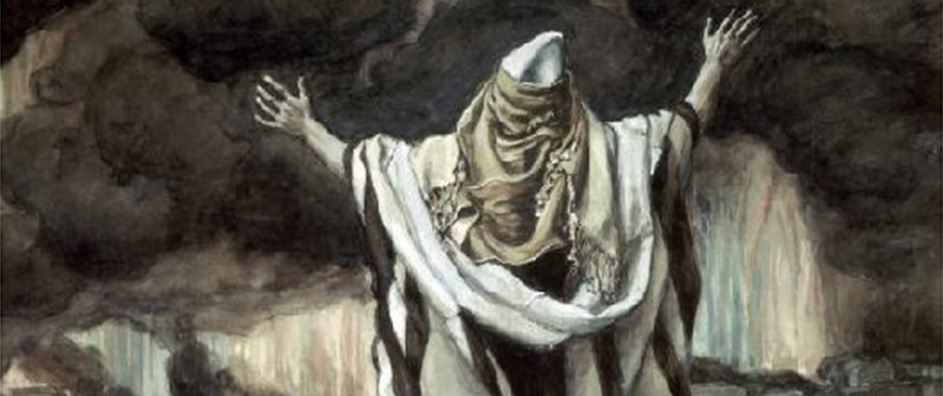The Bahá’í Faith, as a universal and progressive religion, emphasizes the importance of symbolism and covenant in spiritual understanding. One of the notable symbolic covenants is the one attributed to Abraham, often referred to as “Abraham’s Bloody, Symbolic Covenant.” This covenant not only serves as a fundamental aspect of the Abrahamic religions but also plays a vital role in the Bahá’í interpretation of divine promises and human responsibilities.
At its essence, Abraham’s covenant encapsulates both a historical and spiritual significance. In Biblical texts, this covenant is depicted through the gruesome ritual of animal sacrifice, wherein the pieces of sacrificed animals are arranged to signify a bond between the Divine and humanity. This symbolism evokes a profound reverence and commitment to a mutual covenant of faith, trust, and divine assistance. On a deeper level, the act of blood sacrifice is emblematic of the seriousness inherent in divine commitments; it highlights the concept that significant spiritual undertakings often require profound sacrifice.
In Bahá’í teachings, the interpretation of this covenant transcends mere historical context. Instead, it represents an evolving understanding of God’s will and the progressive nature of revelation. The Bahá’í perspective frames this covenant as a precursor for subsequent covenants made with other prophets, reflecting the unifying thread of divine guidance across different religious epochs. This continuity highlights a central tenet of the Bahá’í Faith: the belief in the oneness of the Prophets of God and the unity of all religions.
A profound aspect of Abraham’s covenant is its representation of faith in action. Abraham, revered as a prophet, exemplifies unwavering commitment to divine instructions. His willingness to engage in acts of sacrifice illustrates the Bahá’í principle that faith is not merely a matter of belief but is fundamentally enacted through deeds. This notion underscores the urgency for adherents to embody ethical principles and work towards the welfare of humanity as a manifestation of their spiritual convictions.
Moreover, the covenant speaks to the contemplative essence of the human relationship with the Divine. The Bahá’í Faith teaches that this relationship is not one-sided; it manifests through dialogue, reflection, and an active pursuit of spiritual growth. In this light, the blood of the sacrifices can be viewed as a metaphorical reflection of the profound spiritual investment required to nurture this relationship. Through trials and tribulations, believers are encouraged to delve into the depths of their spiritual responsibilities, thus reaffirming their commitment to the covenant.
One of the critical literary elements associated with the analysis of this covenant is the examination of the historical context and its theological ramifications. The pre-Islamic period in the Middle East, marked by polytheism, throws a glaring spotlight on the paradigm shift introduced by Abraham’s monotheistic faith. The covenant can thus be perceived as a pivotal moment in religious consciousness that established the groundwork for monotheism and subsequent ethical teachings found in Judaism, Christianity, and Islam. As these religions unfolded, the reading of the covenant evolved, yet it retained its core message—one of steadfastness and transformative faith.
A key theme manifesting from the examination of Abraham’s covenant within the Bahá’í narrative is the interpretation of sacrifice as an integral aspect of spiritual development. The Bahá’í understanding propounds that true sacrifice goes beyond physical or ritualistic offerings. Instead, it encapsulates the relinquishing of egotism, materialism, and divisive sentiments. Such teachings encourage individuals to transcend their self-interest, nurturing a spirit of collective unity and brotherhood, thereby reinforcing their commitment to the covenant.
Furthermore, the implications of this covenant extend into societal dimensions. The Bahá’í Faith promotes the concept of global spiritual civilization, an ideal where the essence of Abraham’s covenant—commitment, sacrifice, and ethical conduct—is manifested in the structures of society. Each individual, through the lens of the covenant, is seen as an agent of positive change, tasked with fostering harmony, justice, and equity in an increasingly fragmented world.
The Bahá’í teachings regarding Abraham’s Bloody, Symbolic Covenant serve as a catalyst for critical discussions on the interconnectedness of spiritual commitments and social responsibilities. By engaging with this covenant, believers are urged to reflect on the deeper meanings encapsulated within it—an invitation to let their spiritual pursuits resonate in every facet of their lives. The covenant’s blood symbolizes dedication, while its symbolic nature fosters a multilayered dialogue between tradition and contemporary understanding.
In conclusion, Abraham’s Bloody, Symbolic Covenant embodies a rich tapestry of theological reflection, historical significance, and ethical implications within Bahá’í teachings. It not only signifies the profound relationships established between God and humanity but also calls upon followers to engage actively with the principles of faith, sacrifice, and unity. As a cornerstone of the Bahá’í Faith, it serves as an enduring reminder of the transformative power inherent in divine covenants—a power that transcends time and continues to shape the spiritual landscape of humanity.
